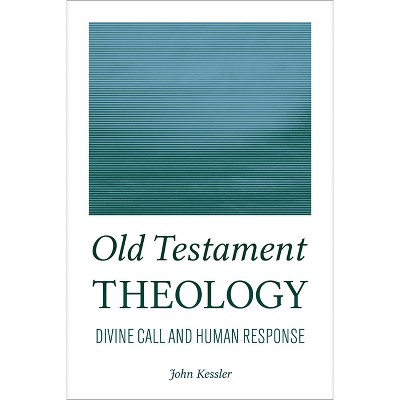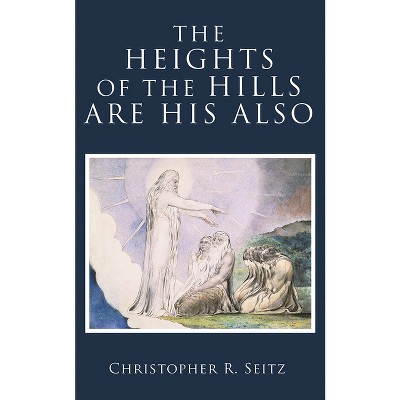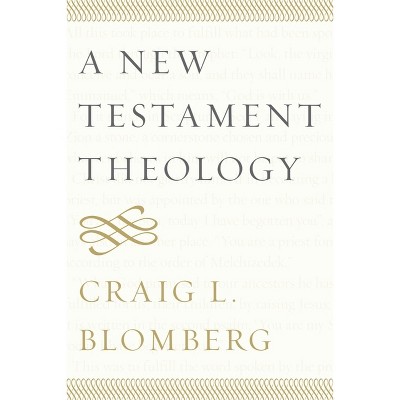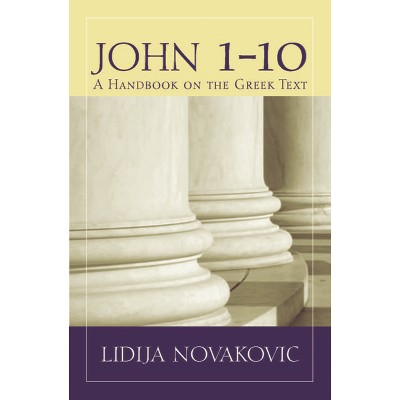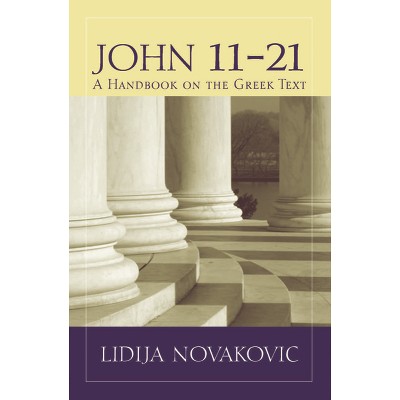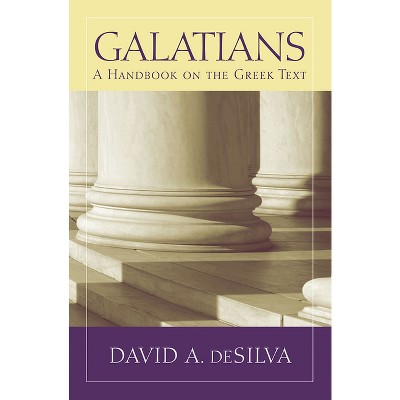About this item
Highlights
- The Elder Testament serves as a theological introduction to the canonical unity of the Scriptures of Israel.
- About the Author: Christopher R. Seitz (Ph.D.
- 310 Pages
- Religion + Beliefs, Biblical Criticism & Interpretation
Description
About the Book
The canon achieves the concord and harmony of the law and the prophets in the covenant delivered at the coming of the Lord of which Clement of Alexandria so eloquently spoke.Book Synopsis
The Elder Testament serves as a theological introduction to the canonical unity of the Scriptures of Israel. Christopher Seitz demonstrates that, while an emphasis on theology and canonical form often sidesteps critical methodology, the canon itself provides essential theological commentary on textual and historical reconstruction.
Part One reflects on the Old Testament as literature inquiring about its implied reader. Seitz introduces the phrase "Elder Testament" to establish a wider conceptual lens for what is commonly called the "Old Testament" or the "Hebrew Bible," so that the canon might be read to its fullest capacity.
Part Two provides an overview of the canon proper, from Torah to Prophets to Writings. Seitz here employs modern criticism to highlight the theological character of the Bible in its peculiar canonical shape. But he argues that the canon cannot be reduced to simply vicissitudes of history, politics, or economics. Instead, the integrated form of this Elder Testament speaks of metahistorical disclosures of the divine, correlating the theological identity of God across time and beyond.
Part Three examines Proverbs 8, Genesis 1, and Psalms 2 and 110--texts that are notable for their prominence in early Christian exegesis. The Elder Testament measures the ontological pressure exerted by these texts, which led directly to the earliest expressions of Trinitarian reading in the Christian church, long before the appearance of a formally analogous Scripture, bearing the now-familiar name "New Testament."
Canon to Theology to Trinity. This trilogy, as Seitz concludes, is not strictly a historical sequence. Rather, this trilogy is ontologically calibrated through time by the One God who is the selfsame subject matter of both the Elder and New Testaments. The canon makes the traditional theological work of the church possible without forcing a choice between a minimalist criticism or a detached, often moribund systematic theology. The canon achieves "the concord and harmony of the law and the prophets in the covenant delivered at the coming of the Lord" of which Clement of Alexandria so eloquently spoke.
Review Quotes
The work's primary strength lies in its coherent and robust theological vision of the Elder Testament as an authoritative theological witness with its own venerable integrity--a vision both traditional and innovative. Seitz's mastery of canonical hermeneutics shines throughout the text, providing a solid backbone for his theological claims. Seitz's erudition shines through in his careful textual readings and his command of theological hermeneutics and early patristic interpretation.
--Stephen L. Cook "Review of Biblical Literature"[The Elder Testament] will make an excellent textbook for those who are looking for a theologically interested approach to Israel's scriptures that engages critical issues.
--Don Collett "International Journal of Systematic Theology"As T.S. Eliot put it in Little Gidding, the end of our exploration is to return to our starting point and to know that place for the first time. This is clearly the case with this new offering from Christopher Seitz, The Elder Testament: Canon, Theology, Trinity. By drawing on his own history in the evolution of Scriptural scholarship, Seitz makes an important contribution to the burgeoning but often imprecisely thought-through field of 'theological interpretation' of Scripture.
--John Behr "Pro Ecclesia"Seitz has produced a valuable work that raises the most important questions every Christian reader of the Elder Testament should ask about the nature of canon, theology, and Trinity, and how these concerns weave together in the process of reading the Bible as Christian Scripture. Every reader has implicit assumptions about these matters, and Seitz has performed a great service by helping readers become aware of how these assumptions govern our reading.
--Paavo Tucker "Stone-Campbell Journal"Chris Seitz has done a great service, both to the scholarly community and to the church, with his latest book, The Elder Testament: Canon, Theology, Trinity. It is the product of many years of reading and teaching the Old Testament
--Hans Boersma "Pro Ecclesia"Seitz has written a stimulating and substantial work that advances the project of interpreting scripture canonically.
--Collin Cornell "Scottish Journal of Theology"...A remarkable tour de force, a re-envisioning of theological study of the Old Testament, whose implications merit serious thought on the part of Christian theologians.
--Walter R.W.L. Moberly "Modern Theology"About the Author
Christopher R. Seitz (Ph.D. Yale) is Senior Research Professor of Biblical Interpretation at Wycliffe College at the University of Toronto.
Shipping details
Return details
Trending Poetry







